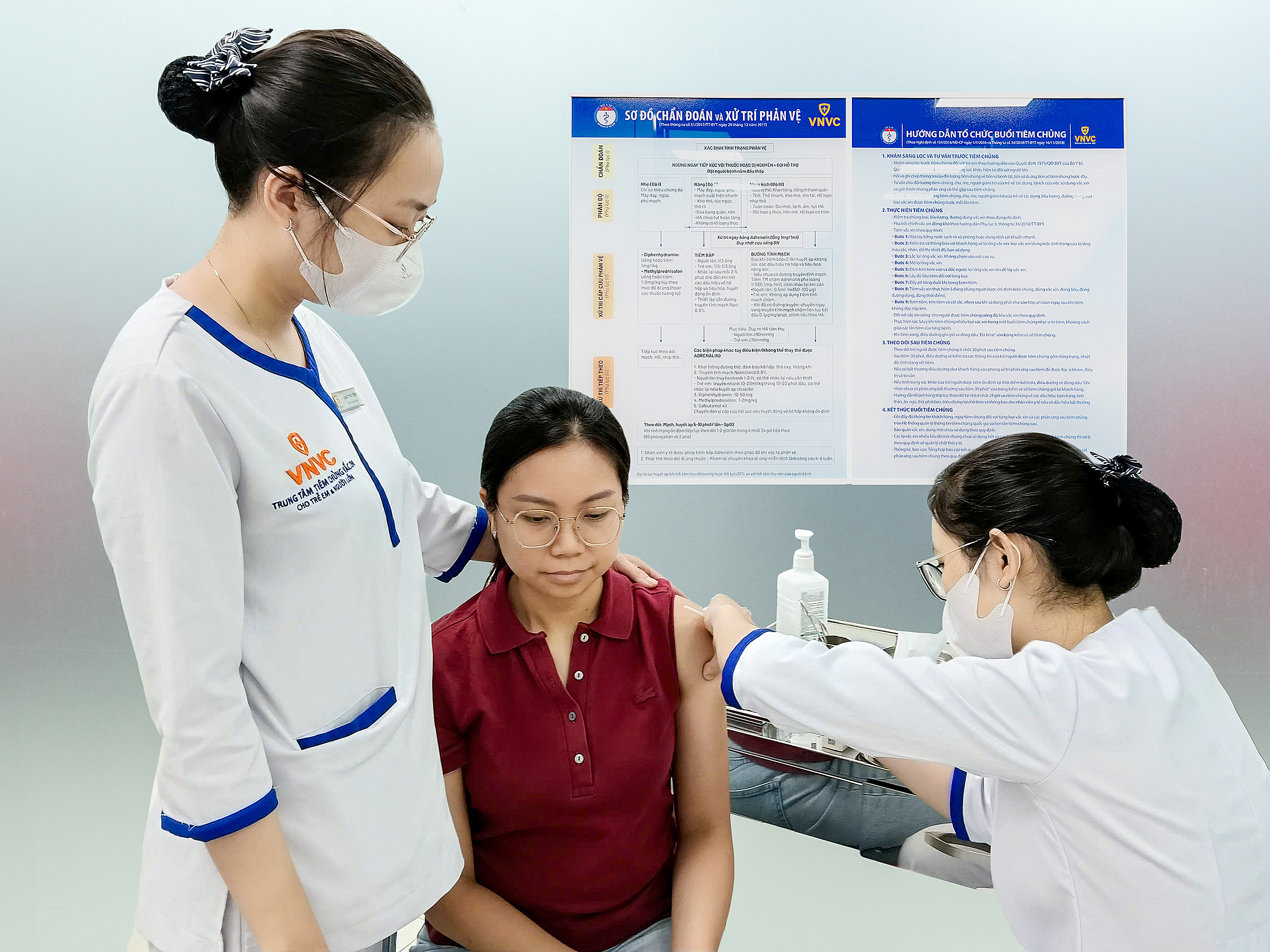Answer:
Both Chikungunya (or Chikv) and dengue fever are transmitted from person to person through the bite of infected female Aedes mosquitoes, primarily Aedes aegypti and Aedes albopictus. However, each disease is caused by a different virus, so the dengue fever vaccine does not prevent Chikv.
According to the Ministry of Health, as of 8/8, no cases of Chikv have been reported in Vietnam this year. However, a study conducted by the National Institute of Hygiene and Epidemiology in collaboration with Nagasaki University, Japan, from 2017 to 2019, based on 1,063 serum samples from 31 provinces and cities, showed that the disease is present in Vietnam. This study found that 46.4% of the samples had antibodies against the Chikv virus, indicating prior infection, and 27.7% tested positive for Chikv, indicating a current infection.
 |
Adults receiving the dengue fever vaccine at the VNVC Vaccination System. Photo: Khanh Hoa |
In addition to Chikv, Vietnam has recorded a high number of dengue fever cases in many localities, with a higher risk of severe progression and mortality compared to Chikv. Since the beginning of the year, tens of thousands of dengue fever cases and over 10 deaths have been reported nationwide.
There are no specific treatments for either disease. Patients receive symptomatic care and supportive treatment to prevent complications. To prevent these diseases, the health sector recommends measures to eliminate mosquito larvae and avoid mosquito bites: Check clean water containers, clean houses, empty stagnant water in bottles, buckets, and basins, sleep under mosquito nets, wear long-sleeved clothing, use mosquito repellent, and get vaccinated for proactive protection.
According to the World Health Organization (WHO), two Chikv vaccines have been approved in some countries but are not yet widely available or distributed in Vietnam.
The dengue fever vaccine, launched in Vietnam in 9/2024, is effective against all 4 serotypes of the virus that cause the disease, including Den-1, Den-2, Den-3, and Den-4. The vaccine is administered to children from 4 years old and adults, with a two-dose schedule, three months apart. Women should ideally complete the vaccination schedule at least three months, and at least one month, before pregnancy. The vaccine prevents the risk of contracting and re-infection with dengue fever by over 80% and reduces the risk of hospitalization by over 90%.
Doctor Le Thi Gam
Medical Manager, VNVC Vaccination System
Readers can submit vaccine-related questions for doctors to answer here.












